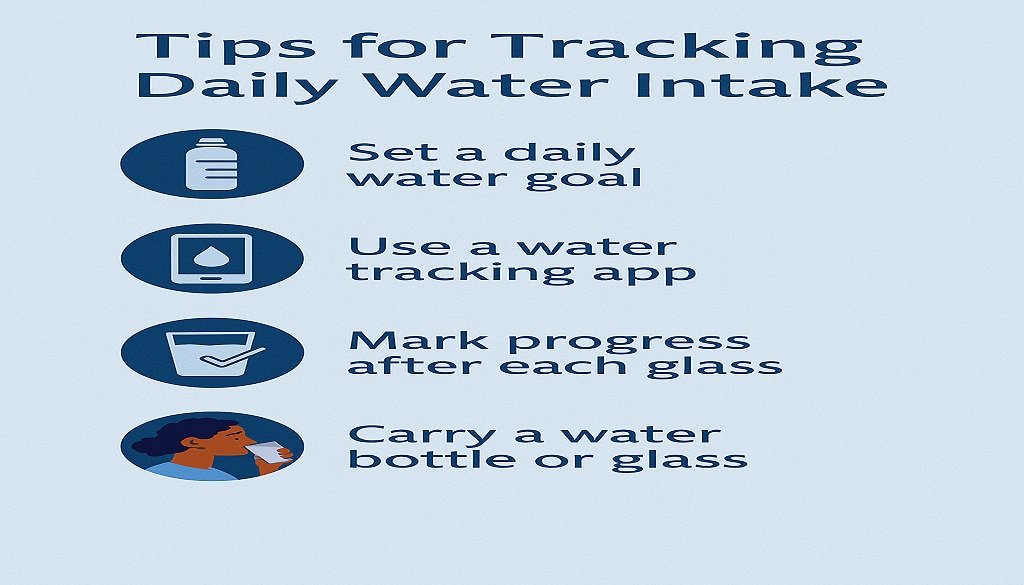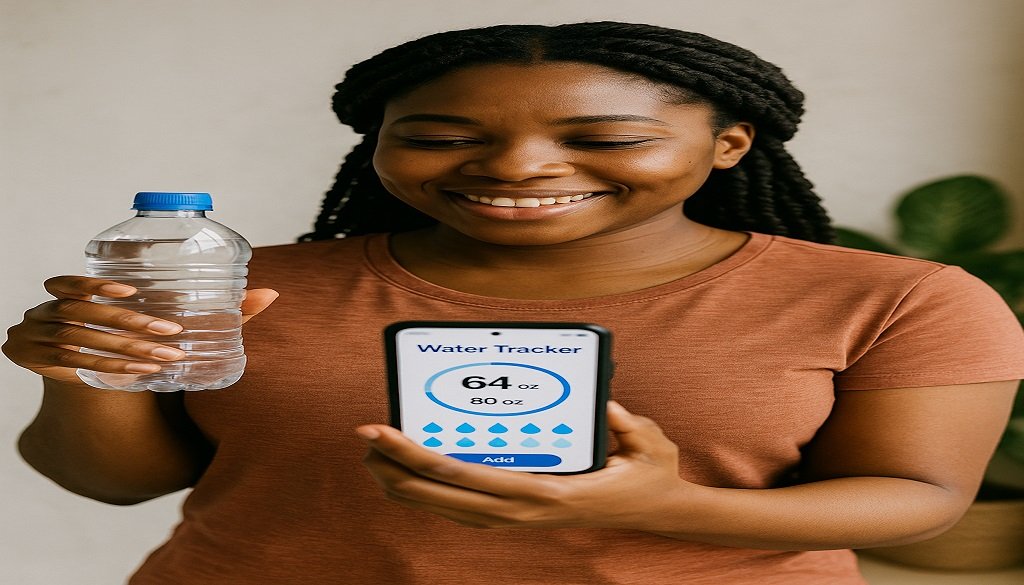Track Daily Water Intake for Optimal Hydration & Health
October 20, 2025 | by Dr. Kenneth A.O
Ensuring you track daily water intake sets a simple but powerful foundation for better health today and tomorrow. Whether you’re navigating the heat of Lagos or climates abroad, keeping a consistent water habit keeps your body running efficiently. Research shows hydration supports brain function, physical performance, mood, and digestion. (Healthline) In this post I’ll walk through why tracking matters, how to track with ease, and what tips you can adopt, both with our free Water Intake Tracker and everyday habits.
Why Tracking Water Intake Matters
Water plays vital roles: it regulates body temperature, cushions joints, transports nutrients, and removes waste. (Harvard Public Health) Scientists estimate even a 2% drop in body water due to sweat or heat can impair physical performance. (Healthline) In hot African climates, high humidity and daily outdoor activities increase fluid loss, meaning you must pay closer attention. Read also: Lifeline of Hydration
Health benefits
- Reduced risk of kidney stones and urinary tract infections (Home)
- Better cognitive focus and fewer headaches. (OSHA)
- Improved digestion and smoother bowel movements. (Medical News Today)
So when you learn to track daily water intake reliably, you give your body the steady supply it needs rather than just reacting when you feel thirsty or fatigued.
How to Track Daily Water Intake

Set your target
Global guidelines suggest approximately 11 cups per day for women and 15 cups for men as a baseline. (Harvard Health) But individual needs vary with exercise, heat, diet and health status. (CDC)
Choose a tracking method
- Use our Water Intake Tracker (download link)
- Use a water-tracking mobile app
- Mark a large reusable bottle with hourly goals
What matters is that you record sips and flows, not just gulps when you’re thirsty.

Adapt for everyday reality
In Nigeria or other African settings, remember:
- Drink more when working outdoors, after prayer, or during heat waves.
- Include fluids in local dishes: soups like egusi, stews with generous broth, and fruit like watermelon and pawpaw also contribute.
- Replace sugary sodas or zobo with plain water or infused water (lime, cucumber) to stay hydrated without adding calories. Read also: How Sugars Sabotage Your Health
Review your week
At week’s end, check whether you hit your target and how often you shy away, and adjust the next week. If you consistently miss it, consider upping your bottle size or setting hourly reminders.

Expert Insights
According to researchers at Harvard T.H. Chan School of Public Health, water is “crucial for many reasons: to regulate body temperature, keep joints lubricated, prevent infections, deliver nutrients to cells and keep organs functioning properly.” (Harvard Public Health)
Meanwhile, a review at the University of California, San Francisco, found increased water intake correlates with weight loss and fewer kidney stones, though more long-term trials are needed. (Home)
For African contexts: studies suggest heat stress and high humidity raise fluid needs, so local hydration habits must match or exceed global averages. Tracking ensures you stay on top of those needs.
Frequently Asked Questions: Track Daily Water Intake
How much water do I really need?
Use about 11 cups for women and 15 for men as a start. Adjust upward for high heat, heavy exercise, or large body size. (Harvard Health)
Do foods and other drinks count?
Yes. About 20 % of fluid intake comes from food (fruits, stews, soups). (Mayo Clinic)
Can I overdrink?
Yes. Drinking extreme volumes too fast can disrupt electrolytes and cause hyponatremia. Listen to your body and pace intake.
What’s the easiest way to start tracking daily?
Download our Water Intake Tracker, set your target, carry a marked bottle, log each refill, and review every evening.
Final Thoughts on Tracking Daily Water Intake
You’ve now seen why tracking daily water intake matters, how to do it easily, and what research supports it—from Harvard to African-specific contexts.
The simplest action today: download our Water Intake Tracker, set your personal target, log every drink, and make hydration one of your daily habits. Your body will thank you, and you’ll feel sharper, cooler, and more energetic on hot afternoons and busy workdays alike.
Download the tracker now, begin your 7-day hydration challenge, and share your results with our community. Start tracking today for a healthier tomorrow.
This post is for educational purposes only; therefore, consult a healthcare professional before taking any medical decisions.
RELATED POSTS
View all


